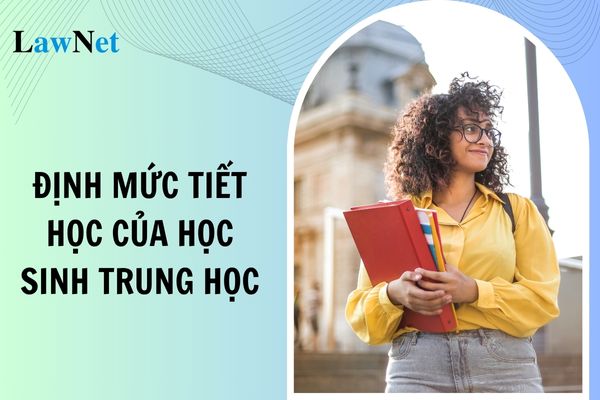What are regulations on the lesson time allotments for lower secondary school students according to the 2018 curriculum in Vietnam?
What are regulations on the lesson time allotments for lower secondary school students according to the 2018 curriculum in Vietnam?
Pursuant to Subsection 1.2, Section 1, Part IV, General Education Program issued together with Circular 32/2018/TT-BGDDT, the lesson time allotments for lower secondary school students are regulated as follows:
| Educational Content | Grade 6 | Grade 7 | Grade 8 | Grade 9 |
| Compulsory Subjects | ||||
| Vietnamese Literature | 140 | 140 | 140 | 140 |
| Mathematics | 140 | 140 | 140 | 140 |
| Foreign Language 1 | 105 | 105 | 105 | 105 |
| Civic Education | 35 | 35 | 35 | 35 |
| History and Geography | 105 | 105 | 105 | 105 |
| Natural Sciences | 140 | 140 | 140 | 140 |
| Technology | 35 | 35 | 52 | 52 |
| Informatics | 35 | 35 | 35 | 35 |
| Physical Education | 70 | 70 | 70 | 70 |
| Arts | 70 | 70 | 70 | 70 |
| Compulsory Educational Activities | ||||
| Experiential Activities, Vocational Orientation | 105 | 105 | 105 | 105 |
| Local Educational Content | 35 | 35 | 35 | 35 |
| Elective Subjects | ||||
| Ethnic Minority Languages | 105 | 105 | 105 | 105 |
| Foreign Language 2 | 105 | 105 | 105 | 105 |
| Total Lesson Hours/Year (excluding elective subjects) | 1015 | 1015 | 1032 | 1032 |
| Average Lesson Hours/Week (excluding elective subjects) | 29 | 29 | 29.5 | 29.5 |
Is Civic Education a compulsory subject in lower secondary school in Vietnam?
Pursuant to Subsection 7, Part V, General Education Program issued together with Circular 32/2018/TT-BGDDT, regulations on educational content orientation are as follows:
EDUCATIONAL CONTENT ORIENTATION
...
- Civic Education
Civic Education plays a key role in educating students on the awareness and behavior of a citizen. Through lessons on lifestyle, ethics, law, and economy, Civic Education contributes to nurturing the main qualities and key competencies of citizens, especially emotions, perceptions, beliefs, and behavior in line with ethical standards and legal regulations, equipping students with living skills and resilience to study, work, and be ready to fulfill civic responsibilities in the cause of nation-building, protection, and international integration.
Civic Education is implemented through all subjects and educational activities, especially social sciences and Experiential Activities, Vocational Orientation, where Ethics (primary school level), Civic Education (lower secondary school level), Economic and Legal Education (high school level) are core subjects.
...
The content of Civic Education is divided into two stages: basic education stage and career orientation education stage.
- Basic Education Stage
Ethics (primary school level) and Civic Education (lower secondary school level) are compulsory subjects. The content of these subjects focuses primarily on educating about personal values, family, homeland, community, aiming to form necessary habits and discipline in studying, living, and the awareness to self-regulate according to ethical standards and legal regulations.
...
Therefore, Civic Education in lower secondary school is a compulsory subject.
The content of these subjects focuses mainly on educating about personal values, family, homeland, community, aiming to instill necessary habits, discipline in studying, living, and the awareness to self-regulate according to ethical standards and legal regulations.

What are regulations on the lesson time allotments for lower secondary school students according to the 2018 curriculum in Vietnam? (Image from the Internet)
What are orientations of educational method in lower secondary school in Vietnam?
Pursuant to Subsection 1, Part VI, General Education Program issued together with Circular 32/2018/TT-BGDDT, the orientations of educational method in lower secondary school in Vietnam are regulated as follows:
- Subjects and educational activities in schools apply methods to activate students' engagement, with teachers playing the role of organizers and guides for student activities, creating a friendly learning environment and problem-solving situations to encourage students to actively participate in learning activities, self-discover their abilities and aspirations, develop habits and self-learning ability, fully utilize their potential and accumulated knowledge and skills to grow.
- Student learning activities include problem-solving discovery, practice activities, and practical application activities (applying what they have learned to identify and address real-life problems), supported by teaching equipment, especially informatics tools and digital automation systems.
- These learning activities are organized both in and outside of school premises through various forms such as theoretical learning, exercises, experiments, games, role-playing, research projects, seminars, field trips, camping, reading, collective activities, and community service.
- Depending on the goal and nature of the activity, students may work independently, in groups, or as an entire class, ensuring that each student is given the opportunity to undertake learning tasks and real-life experiences independently.

